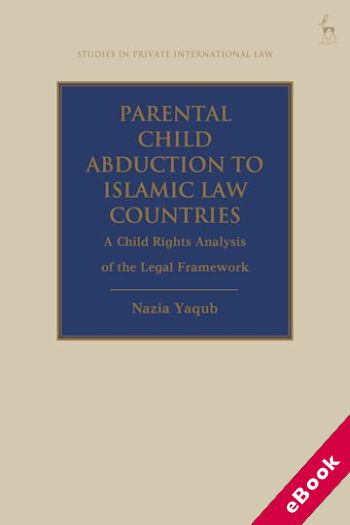
The device(s) you use to access the eBook content must be authorized with an Adobe ID before you download the product otherwise it will fail to register correctly.
For further information see https://www.wildy.com/ebook-formats
Once the order is confirmed an automated e-mail will be sent to you to allow you to download the eBook.
All eBooks are supplied firm sale and cannot be returned. If you believe there is a fault with your eBook then contact us on ebooks@wildy.com and we will help in resolving the issue. This does not affect your statutory rights.
As the world becomes smaller, family law is becoming truly global, giving rise to more and more questions for private international law. This book looks at the sensitive and complex question of child abduction, with a unique children's right perspective. Taking Islamic law as its case study, it delves into child abduction in key jurisdictions from Iran to Saudi Arabia and Libya to Pakistan. Rigorous doctrinal analysis is enhanced by empirical insights, namely interviews with abductees, parents and professionals. It is an excellent guide to a complicated field.